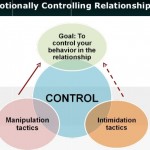In a world where conversations about equality and gender relationships are becoming increasingly relevant, it is important to scrutinize more interpersonal relationships, like that of lovers or couples. Whether you believe it or not, power dynamics in relationships is an actual thing, which can determine how you behave with your partner, and how likely you are to end up with each other. You might think that “power” is a strange word to use when it comes to romantic relationships, but it is undeniable that power plays a vital role in determining the way two people interact with each other on a personal level.
Suggested read: Do People Always Leave You? 16 Powerful Signs You Are Sabotaging Your Relationships
The word “power” has connotations of an unequal status quo between two people. It is extremely rare to find a couple where both partners interact with each other on the same level. This does not always mean that one is consistently dominant and the other is consistently deferential. Most people tend to restrict the notion of power to decision-making and other banal, surface things, but in fact, the word has a more significant role to play, when it comes to analyzing relationships.

Image source: Pixabay, under Creative Commons License
If you think of yourself as a feminist, then you might feel that power dynamics are at an absolute equilibrium between you and your partner. However, that is not the case at all. The moment you fall in love with someone, or the moment you make them your partner, you are giving them power over you, which is another way of looking at power dynamics in relationships. Power has an important role to play not only in terms of determining the course of a relationship, but also in the way it is currently functioning. The moment you compromise yourself, the moment you allow someone else to influence your actions and decisions, you are assuming a subservient position to your partner.
However, this situation is not, since they are doing the same. Therefore, power dynamics in a relationship have many facets, which have to be carefully understood and maneuvered, in order to thrive in a healthy relationship.
What Affects Power Dynamics in a Relationship
Like every other thing in a relationship, your power dynamics are also affected by certain things. Certain standardized notions set by society have pre-determined what should give someone a greater sense of power than their partner, especially when it comes to intimate relationships. Here are a few factors which can cause a power imbalance in relationship.
1. Decision domain

Image source: Google, copyright-free image, under Creative Commons License
When you are in a relationship, you both take decisions. Very rarely does it happen that it is one person taking all the decisions and the other person following orders. However, the areas in which each partner takes decisions is important in determining the kind of power dynamics that two people share.
For example, if one partner decides how much money is to be spent on a vacation, and the other partner decides the destination where they should be going, then the one making the financial decision assumes a position of authority. This is further explained in the next point.
2. Earning capacity
Earning capacity has a huge role to play in determining the power dynamics in a relationship. It is automatically assumed and taken for granted that the person who is earning, or the person who is earning more in a relationship is dominant, and their partners are deferential. This is because economics is the basis for all social interactions, whether we like it or not.
Money can decide how people interact with each other, no matter how intimate they are. No matter how two people divide decision domains between each other, if there is an imbalance in the earning potential of the two people involved, there is going to be some sort of shift in the power dynamics.
3. Gender

Image source: Pixabay, under Creative Commons License
No matter how many feminist discussions are initiated, it is undeniable that gender has a huge role to play when it comes to determining power dynamics in a heterosexual relationship. Several researchers have conducted several studies with thousands of test subjects, and they have all come to the same conclusion, that men almost always have a greater sense of power in a relationship. To find a woman in a dominant role in a relationship is the exception, and most certainly not the norm.
The patriarchy is an undeniable third participant in a relationship, which dictates that more often than not, the man must have the upper hand in a heterosexual relationship. Even though there are several relationships which are exempt from this rule, somehow or the other, gender ends up playing a vital role in determining the power dynamics in a relationship.
4. Emotional investment
Deciding who has the upper hand when it comes to power in a relationship has a lot to do with the subjective feelings of love and dependency. No matter how much you would like to believe otherwise, most couples don’t love each other equally. While there are a lot of couples who are equally dedicated to their relationship, sometimes it may so happen that one partner is more dedicated to their partnership than the other.
For example, you might see that you are always the one to make up to your partner after a fight, or you are constantly taking initiative to keep things fresh and exciting in your relationship. This means that you are the one who is more emotionally invested in your partner, and the relationship that you share. In that case, it is you who assumes the subservient position, and your partner, who is more detached, assumes a position of power over you, making it easier for them to dictate your actions and decide the future of your relationship, along with making other smaller decisions.
5. Physical appearance

Image source: Pixabay, under Creative Commons License
Believe it or not, physical appearance can also affect the power dynamics that two people share when they are in a relationship. For years, popular media has imposed a standard idea of beauty on people, and if one doesn’t conform to it, they are considered not attractive.
To put it simply, if you think your partner is conventionally “hot” or “good-looking,” there is an immediate shift in power dynamics, because you are constantly under the impression that they have more options, better prospects etc. than you, which is why you might feel the need to over-compensate, therefore, immediately giving them power over you out of your own sense of insecurity. This is most definitely not the norm for a lot of couples, but it is nonetheless, a deciding factor for power dynamics in a relationship.
Suggested read: Everything You Need To Know About Emotional Abuse
How To Maintain Status Quo In A Relationship
No matter how much two people love each other, there is no way that a relationship can work out if there is an imbalance in the power dynamics of the two people involved. Most guides that you see online are about “regaining” control in a relationship, which is absolutely the wrong approach. No one person should be in control of a relationship, because it is about the equal contribution and participation of both partners. To make sure that you have a happy and healthy partnership with the person you love, here are some things you can do to maintain an equal, mutually rewarding and complementary relationship.
1. Compromise
When you are in a relationship, you are bound to find yourself in situations where you disagree on certain things. It is important to compromise, where you meet in the middle, instead of always listening to the other person, or always having your way.
2. Honesty
Being honest with each other can go a long way in maintaining the power dynamics in a relationship. Talking about issues candidly, expressing discontent, talking about your problems and solving them like mature adults is one of the best ways to ensure that there is no latent regret, anger or resentment, which could lead to a shift in power dynamics.

Image source: Google, copyright-free image, under Creative Commons License
3. Collaboration
When you are trying to restore a balance power structure in your relationship, make sure you divide the decision domains equally. Analyze the special tenets of your own relationships, and find out the areas you know will not create complications if one is to take charge of it over the other. Once you learn how to collaborate and work through your relationship, dominance and deference will be a non-existence issue.
4. Acknowledgment
It is very important to acknowledge that power dynamics do in fact, exist. When you are aware that there is an imbalance in your relationship, it is easier to address the problem, and accordingly, take the necessary steps to prevent your relationship from breaking down.
Suggested read: 6 Sure Signs That You Have A Passive Aggressive Partner
Whether you want it or not, power dynamics in relationships is a reality that affects every single couple, ever. You cannot jump into a perfectly balanced, equal relationship. It is important for you and your partner to build a relationship that is mutually rewarding, and allows equal space and opportunity to both partners involved.
Featured image source: Google, copyright-free image, under Creative Commons License












